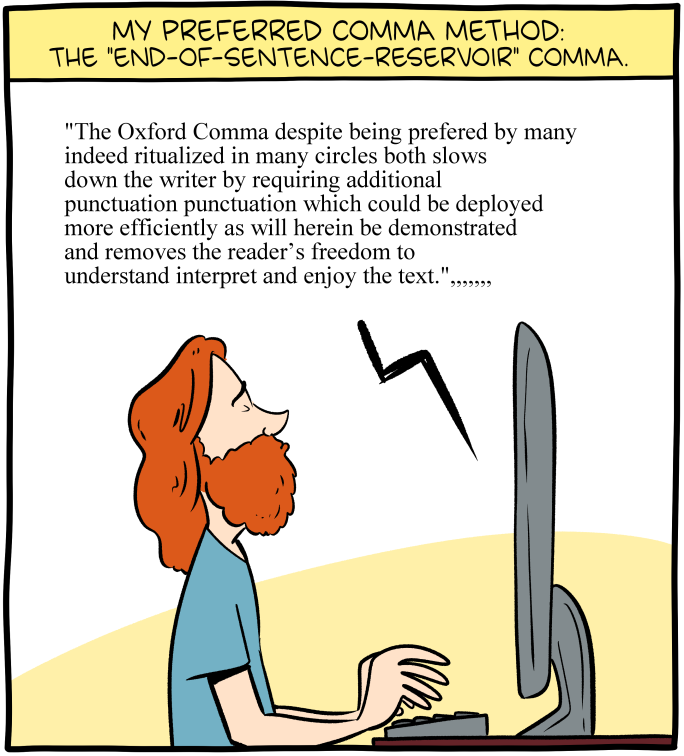How to Use “However”
When “however” is an adverb, it’s a plain old adverb:
However you do it, do your work with good tools.
But “however” is frequently used as an aside, a pause in the flow of thought. When you use “however” this way, always follow it with a comma.
However, using good tools does not guarantee good work.
What do you do when “however” is inside a sentence? Preceed the word with a semicolon, not another comma! This sentence is wrong:
No modern clinical researcher has returned to Kast’s ideas, however, anecdotal cases have begun to emerge highlighting some people self-medicating with LSD microdoses to treat chronic pain.
https://newatlas.com/science/trial-lsd-microdoses-acute-pain-study-results
We have a judgement call here because what’s before and what’s after the “however” are different enough that the second part of the sentence could stand alone as its own sentence. The passage should be either of these:
- No modern clinical researcher has returned to Kast’s ideas; however, anecdotal cases have begun to emerge highlighting some people self-medicating with LSD microdoses to treat chronic pain.
- No modern clinical researcher has returned to Kast’s ideas. However, anecdotal cases have begun to emerge highlighting some people self-medicating with LSD microdoses to treat chronic pain.
But don’t put a comma ahead of “however”!
Um, a picture. Here’s what came with the article. Can you interpret it? I think it presumes more knowledge of LSD than I have:

Subscribe to this blog's RSS feed
Punctuation Matters
I think I mentioned this topic before. Here’s another good example of how punctuation can change the meaning of a phrase.
As written in the comic, you have a compound phrase about the two things that the person is doing. The original is “downward-facing dog.” “Downward-facing” is a compound adjective describing “dog.”
So the punctuation makes the joke!
Don’t Do This!
Need convincing that punctuation is optional? Read this:
And I have a question for you: Did he put the right number of commas at the end???
A spelling Comic
Not a lot of content here, but it’s on topic…
I counted five spelling errors, not counting the comma.
Restrictive or Non-restrictive
First the example:
The Sapelo Island Lighthouse is the second-oldest brick lighthouse in the country dating back to 1820.
https://blog.thediscoverer.com/10-best-usa-islands-outside-hawaii/
Here’s a picture of the lighthouse:

Sometimes you use a phrase (no verb) or a clause (has a verb) to describe something. When you separate that description from what it describes with a comma, we call it non-restrictive. It’s an aside. No comma? Then it’s restrictive, part of the definition of what you’re describing.
That’s a little bit tricky to follow, so let’s look at that sentence about the lighthouse.
It’s the second-oldest brick lighthouse in the country. So far, so good. But what about “dating back to 1820”?
- Is it the second oldest one that dates back to 1820?
- Is it the second oldest one, and it happens to date back to 1820?
The first bullet is restrictive, part of the definition. Apparently we have lots of lighthouses that date back to then, and this is the second oldest. Seems unlikely.
The second bullet merely adds some information about the lighthouse; it dates back to 1820. It’s non-restrictive.
What a difference a day comma makes!
Remember: no comma, gotta have it—restrictive. Comma, extra info—non-restrictive.


